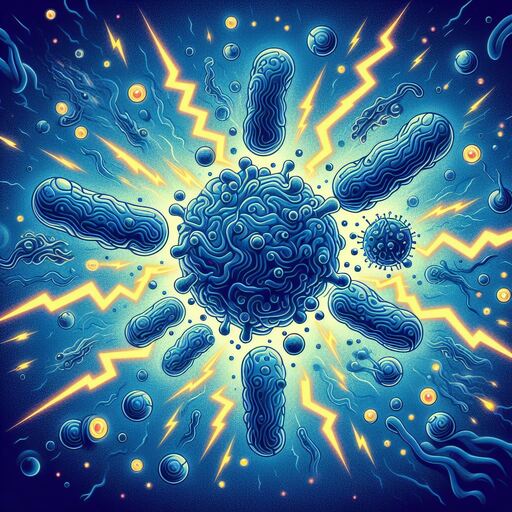The Power of Antibiotics Unleashed
The Power of Antibiotics Unleashed
Introduction: In the annals of medical history, few discoveries have had as profound an impact on human health as antibiotics. These miracle molecules, born out of scientific ingenuity and serendipity, have revolutionized the treatment of bacterial infections and saved countless lives since their inception. From the penicillin mold to modern synthetic derivatives, antibiotics have unleashed a formidable power in the fight against infectious diseases. This article delves into the captivating journey of antibiotics, exploring their discovery, mechanisms of action, therapeutic significance, and the challenges they face in an era of antibiotic resistance.
The Dawn of Antibiotics: The story of antibiotics begins with the accidental discovery of penicillin by Sir Alexander Fleming in 1928. While studying Staphylococcus bacteria, Fleming noticed that a mold called Penicillium notatum produced a substance that killed bacteria. This chance observation paved the way for the development of the first antibiotic, penicillin, which proved remarkably effective against a wide range of bacterial infections. Its introduction during World War II marked a turning point in medicine, drastically reducing mortality rates from previously untreatable infections.
The Power of Antibiotics Unleashed
Mechanisms of Action: Antibiotics exert their therapeutic effects through various mechanisms, targeting specific components or processes essential for bacterial survival. Penicillin, for instance, disrupts bacterial cell wall synthesis, leading to cell lysis and death. Other antibiotics inhibit protein synthesis, DNA replication, or metabolic pathways within bacteria, effectively crippling their ability to proliferate and cause harm. By selectively targeting bacteria while sparing human cells, antibiotics provide a potent weapon against microbial invaders.
The Therapeutic Landscape: The advent of antibiotics transformed the therapeutic landscape, enabling physicians to combat a wide spectrum of bacterial infections ranging from strep throat to life-threatening sepsis. These medications have become indispensable in treating conditions such as pneumonia, urinary tract infections, skin infections, and tuberculosis. Furthermore, prophylactic use of antibiotics has revolutionized surgical procedures, reducing the risk of postoperative infections and improving patient outcomes.
The Power of Antibiotics Unleashed
Challenges and Limitations: Despite their efficacy, antibiotics face formidable challenges in the form of antibiotic resistance—a natural evolutionary process driven by genetic mutations and selective pressure. Overuse and misuse of antibiotics have accelerated the emergence of resistant bacteria, rendering some antibiotics ineffective against certain strains. This alarming trend poses a grave threat to public health, jeopardizing the effectiveness of our most potent antimicrobial agents. Additionally, antibiotics can cause adverse effects such as allergic reactions, gastrointestinal disturbances, and the disruption of beneficial gut bacteria.
Combatting Antibiotic Resistance: Addressing antibiotic resistance requires a multifaceted approach encompassing prudent antibiotic use, infection prevention and control measures, development of novel antibiotics, and public awareness campaigns. Healthcare professionals play a pivotal role in promoting antimicrobial stewardship, advocating for rational prescribing practices and judicious use of antibiotics. Concurrently, researchers are exploring innovative strategies to combat resistance, including the development of new antibiotics, combination therapies, and alternative antimicrobial agents.
The Power of Antibiotics Unleashed
Future Directions: The future of antibiotics lies in innovation and collaboration across scientific disciplines. With the advent of genomics, proteomics, and artificial intelligence, researchers are uncovering novel drug targets and designing antibiotics with enhanced potency and specificity. Furthermore, the concept of phage therapy—utilizing bacteriophages to target and destroy bacteria—holds promise as an alternative or adjunctive approach to antibiotic therapy. By embracing these advancements and fostering global cooperation, we can safeguard the efficacy of antibiotics for generations to come.
Conclusion: Antibiotics stand as a testament to human ingenuity and resilience in the face of microbial adversaries. From humble beginnings to global acclaim, these miracle molecules have transformed the practice of medicine and saved countless lives worldwide. Yet, their efficacy is under siege by the relentless march of antibiotic resistance. As stewards of antibiotic stewardship, it is incumbent upon us to preserve the power of antibiotics through responsible use, innovation, and collective action. Only then can we ensure that the legacy of antibiotics endures as a beacon of hope in our ongoing battle against infectious diseases.
The Power of Antibiotics Unleashed

